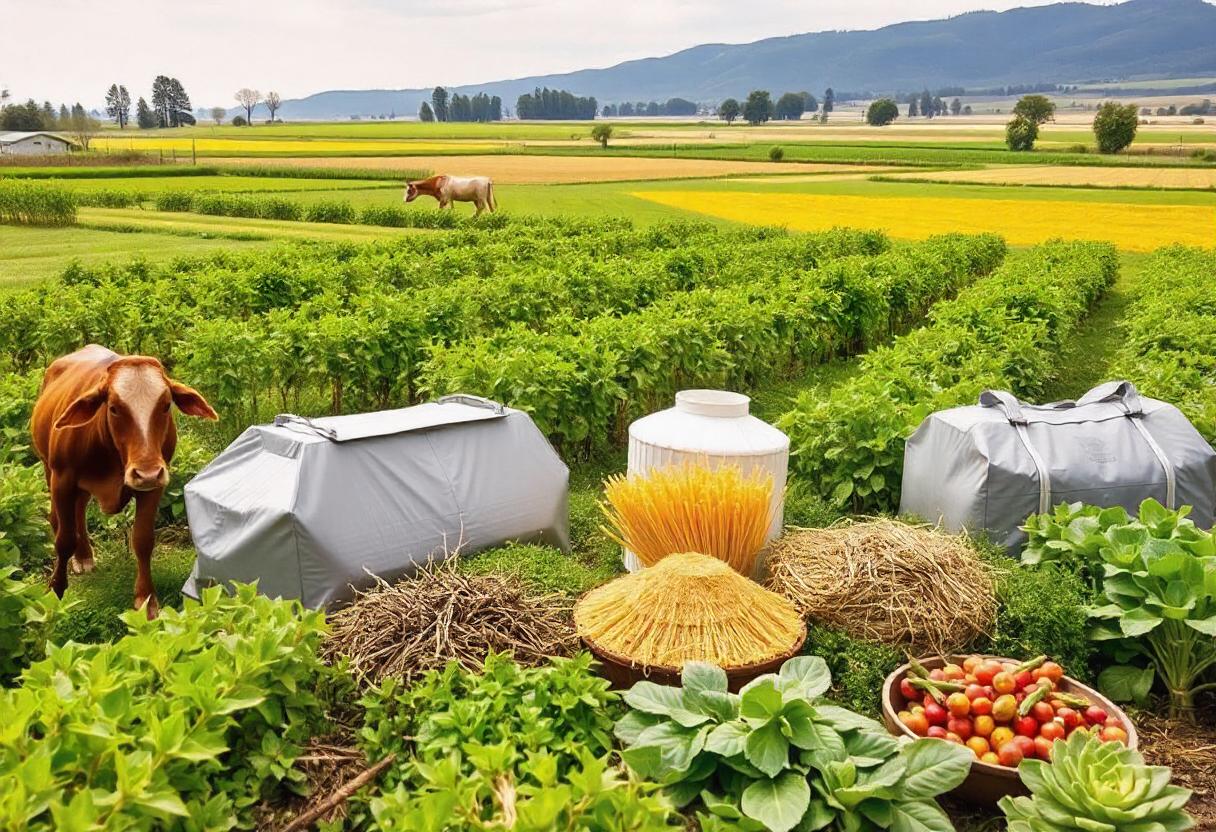
Agriculture commodities are fundamental products derived from agricultural activities that play a crucial role in global trade and food systems. These commodities include crops, livestock products, and other agricultural goods that are traded on markets and used for various purposes, from consumption to industrial applications.
Types of Agriculture Commodities
Crop Commodities
Crop commodities encompass a wide range of plant-based products that are cultivated for human consumption, animal feed, and industrial use. Key categories include:
- Grains and Cereals: Staple crops like wheat, rice, corn, barley, and oats. These are primary sources of calories and nutrients in many diets and are used in both human food products and animal feed.
- Oilseeds: Seeds such as soybeans, canola, and sunflower are grown for their oil content, which is used in cooking, food processing, and as an ingredient in various products.
- Legumes: Beans, lentils, peas, and chickpeas are rich in protein and are important for both human diets and livestock feed.
- Fruits and Vegetables: A diverse range of produce including apples, bananas, tomatoes, and carrots, which are essential for a balanced diet and are consumed fresh or processed.
Livestock Commodities
Livestock commodities include products derived from animals raised for food and other purposes. This category includes:
- Meat: Products such as beef, pork, chicken, and lamb. Meat is a significant source of protein and other nutrients in many diets.
- Dairy: Products like milk, cheese, yogurt, and butter, which are derived from dairy cattle, goats, and sheep.
- Eggs: Produced primarily by chickens, eggs are a versatile and widely consumed food product.
Other Agricultural Commodities
In addition to crops and livestock, other agricultural commodities include:
- Fibers: Such as cotton and wool, used in textiles and clothing.
- Biofuels: Derived from crops like corn (for ethanol) and soybeans (for biodiesel), used as renewable energy sources.
- Industrial Raw Materials: Products like rubber from natural rubber trees and various plant extracts used in manufacturing and pharmaceuticals.
Market Dynamics
Agricultural commodities are traded on various markets, and their prices can be influenced by several factors:
Supply and Demand
- Production Levels: The quantity of commodities produced can impact market prices. Factors like weather conditions, crop yields, and disease outbreaks affect production levels.
- Consumer Demand: Changes in consumer preferences, population growth, and economic conditions can influence demand for different commodities.
Trade and Policies
- Global Trade: International trade agreements, tariffs, and export/import policies can affect commodity prices and availability.
- Government Policies: Subsidies, support programs, and regulations can impact commodity production and market dynamics.
Economic Factors
- Currency Fluctuations: Exchange rates can influence the competitiveness of a country’s exports and imports, affecting commodity prices.
- Market Speculation: Investment in commodity futures and trading can lead to price volatility and market fluctuations.
Challenges in Agriculture Commodities
The production and trade of agriculture commodities face several challenges:
Climate Change
- Extreme Weather: Changes in climate patterns, such as droughts, floods, and temperature fluctuations, can impact crop yields and livestock health.
- Resource Management: Efficient management of water, soil, and other resources is essential for maintaining productivity and sustainability.
Supply Chain Disruptions
- Logistics: Issues such as transportation bottlenecks, infrastructure challenges, and global supply chain disruptions can impact the availability and cost of commodities.
- Trade Barriers: Political instability, trade disputes, and regulatory changes can affect the flow of commodities across borders.
Sustainability and Environmental Impact
- Land Use: Expanding agricultural production can lead to deforestation and habitat loss. Sustainable practices are needed to balance production with environmental conservation.
- Resource Depletion: Overuse of water, soil degradation, and loss of biodiversity are concerns that need to be addressed through sustainable farming practices.
Innovations and Future Directions
The agriculture commodities sector is evolving with new innovations and practices aimed at addressing challenges and improving sustainability:
Technological Advances
- Precision Agriculture: Utilizes data and technology to optimize resource use and improve crop and livestock management.
- Genetic Engineering: Develops crop varieties with improved traits such as disease resistance, drought tolerance, and higher yields.
Sustainable Practices
- Regenerative Agriculture: Focuses on practices that restore soil health, increase biodiversity, and enhance carbon sequestration.
- Circular Economy: Promotes the use of by-products and waste materials to reduce environmental impact and improve resource efficiency.
Market Adaptations
- Diversification: Farmers and producers are diversifying their crops and products to reduce risk and adapt to changing market conditions.
- Local and Organic Markets: Growth in local and organic markets reflects changing consumer preferences for sustainable and high-quality products.
Agriculture commodities are integral to global food systems and economies. Understanding their types, market dynamics, and associated challenges helps stakeholders navigate the complexities of agricultural production and trade, while innovations and sustainable practices pave the way for a more resilient and efficient sector.